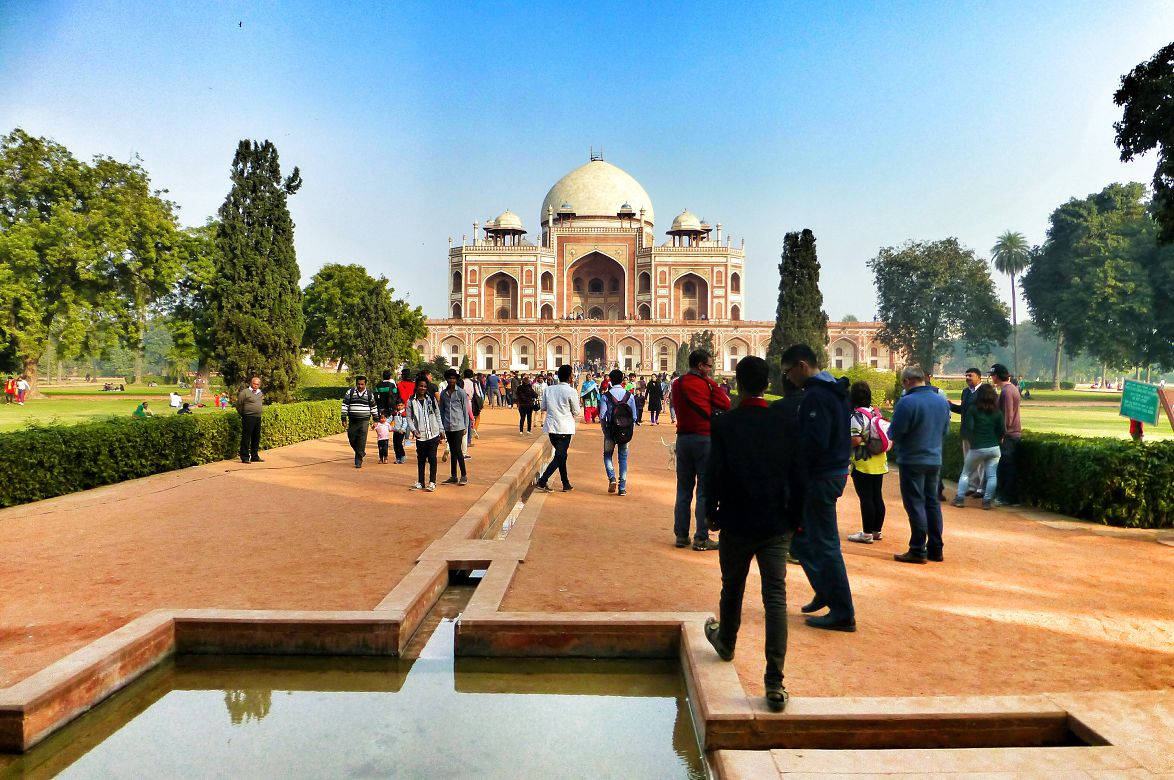Located in the eastern part of Delhi, Humayun’s Tomb is one of the best preserved Mughal monuments. This spellbinding mausoleum is the first example of Mughal architecture in India. This tomb was the inspiration of the more famous Taj Mahal in Agra. That was also the first that came to my mind when you see the mausoleum and the surrounding garden.
Humayun’s Tomb, A UNESCO World Heritage Monument
New Delhi, India
A visit to this tomb is most welcome during a day in New Delhi. After all, it takes you away from the daily hustle and bustle of the city.
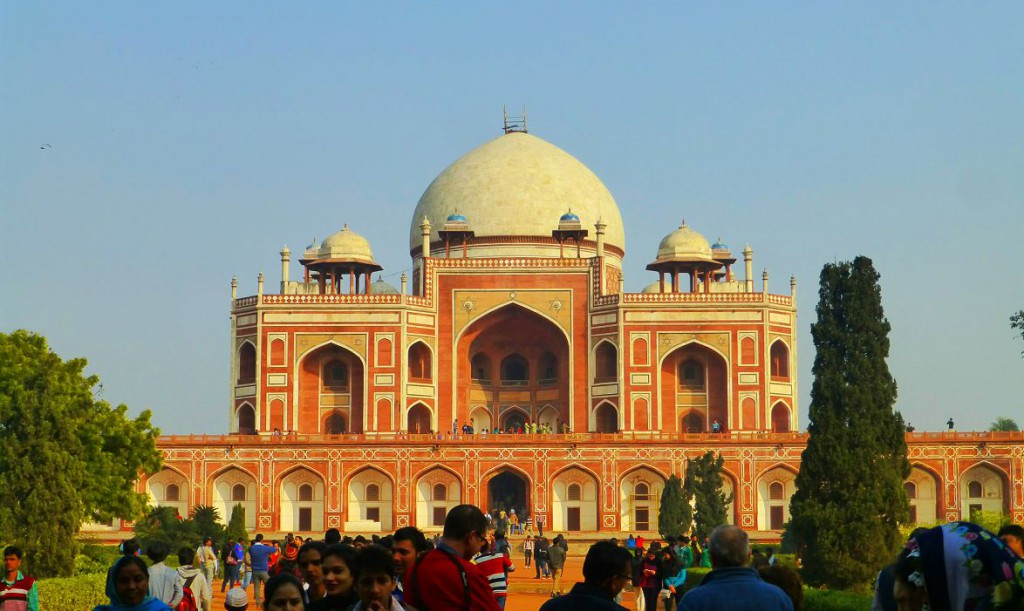
World Heritage Monument (Unesco) in New Delhi – India
Architecture Humayun’s Tombe
If you look at the background of the architect of this building, it is a unique link between the Gur Emir, where Humayun’s ancestor Tamerlane is buried, and the mausoleum where his grandson Shah Jahan lies, the Taj Mahal.
A stroll in the gardens of Humayun’s Tomb
Visiting Humayun’s Tomb
I came here on my Delhi Day Tour early in the afternoon and I found myself stepping back into history. Coming out of the busy streets of Old Delhi and stepping into this wonderful parc surrounding the ancient old Tomb is simply amazing! The honking and sirens of the busy traffic just faded and it felt like I walked in a remote area full of nature and great ancient old buildings!
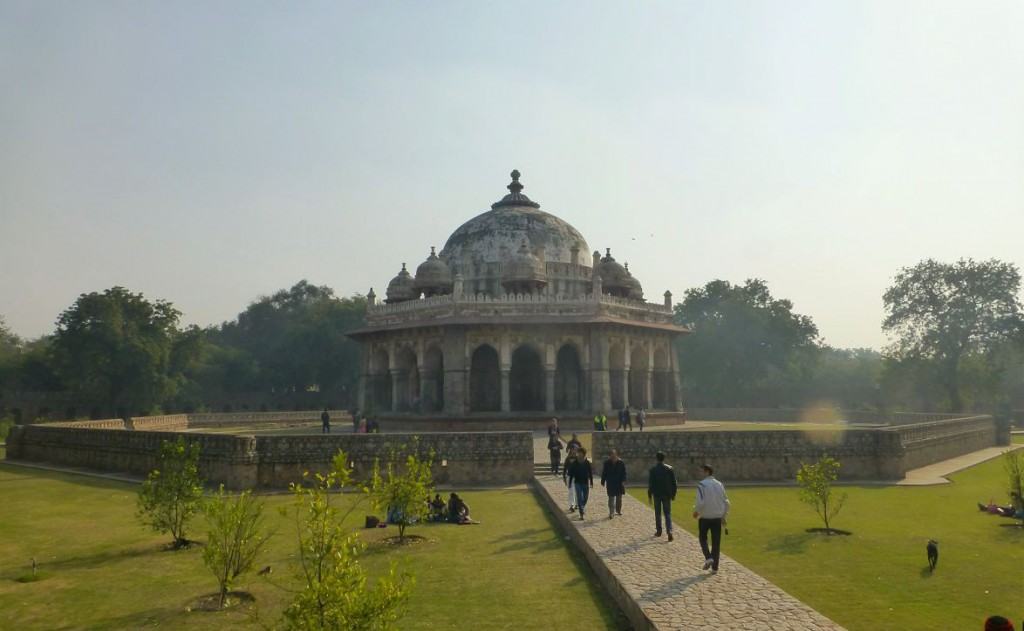
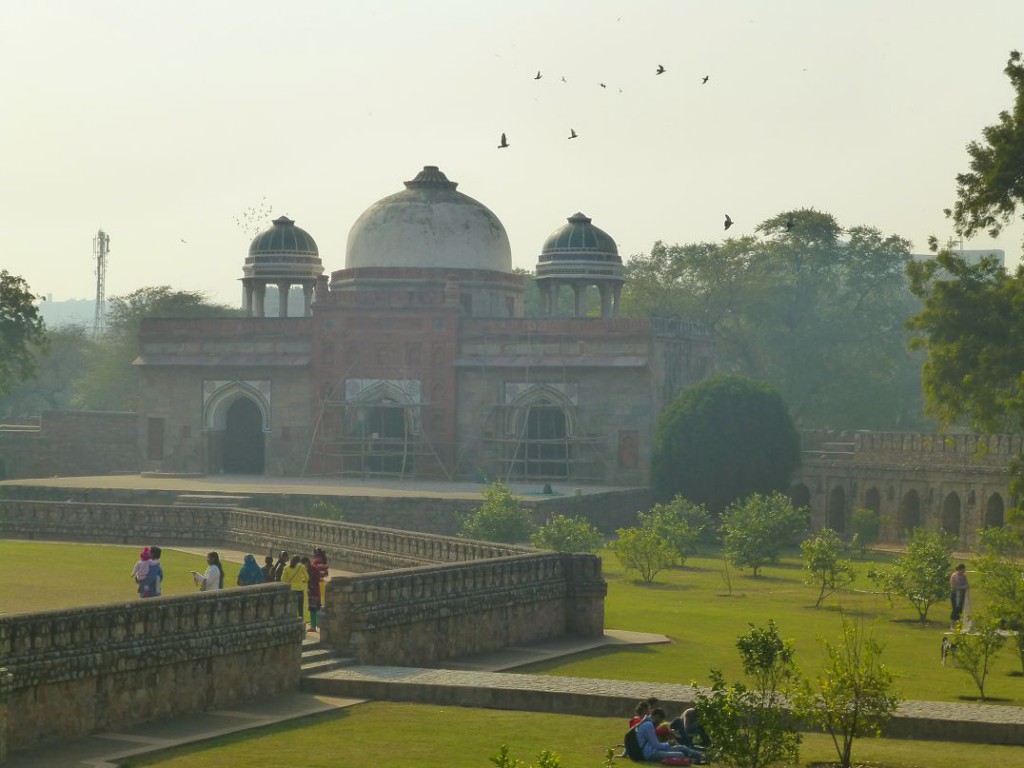
If you walk into the garden first, you have Isa Khan’s small tomb on your right. This one is even older than Humayun’s tombs. It is a beautiful round building surrounded by a circular wall. I walked along the wall to get a good view of the surroundings. After this, I walked inside the tomb. It is great to be able to walk where you want, it was not crowded at all. The tourists I saw were Indian people. No European or American touch and that is quite nice!
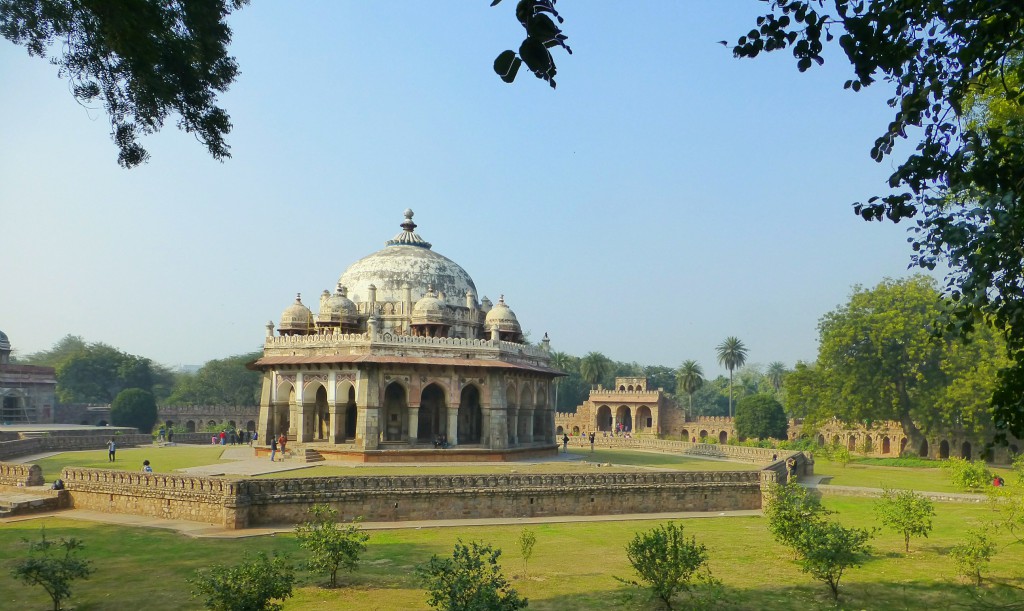
Garden of Humayun’s Tomb
Walking back to the main road, I continued my way into the park. I passed through a small gate and then a larger one. As I walked through that large gate, I saw the large imposing tomb a little further on. From the 17th century to the 19th century, the garden was gradually filled with tombs built for Humayun ‘s descendants and close relatives. The garden, divided into four parts by roads or water, was created so that it represents the garden of paradise as described in the Qur’an.
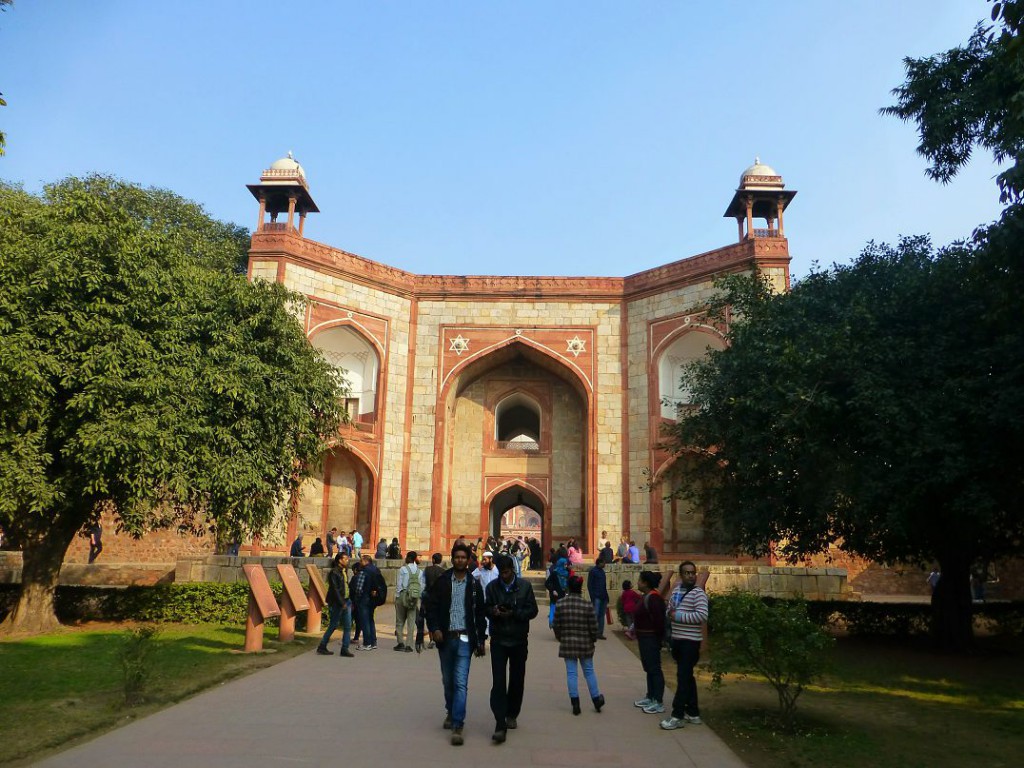
Humayun’s Tomb – World Heritage of UNESCO
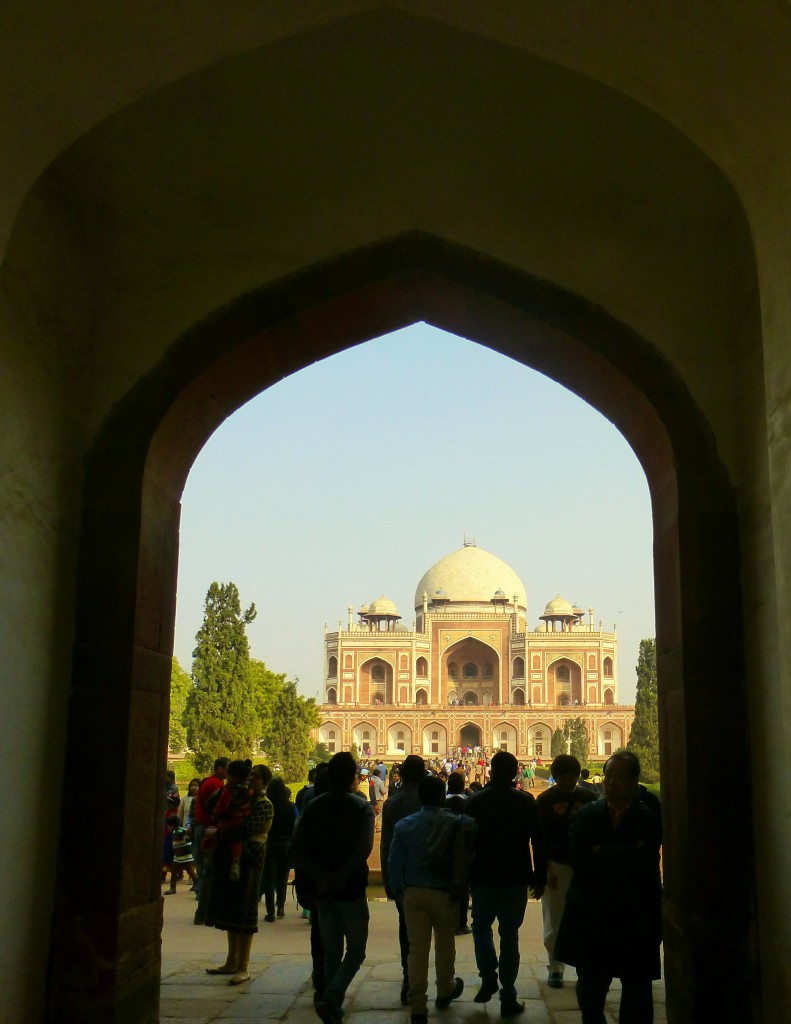
Mausoleum Facts
The Mausoleum stands on a massive platform that has a height of 7 metres. The building is made of red sandstone, while the tomb itself is made of yellow and black marble. The two-storey mausoleum is crowned with a Persian-style marble dome which seems to float seemingly weightlessly above the tomb. The height of Humayun’s Tomb is 47 metres and its width is 91 metres.
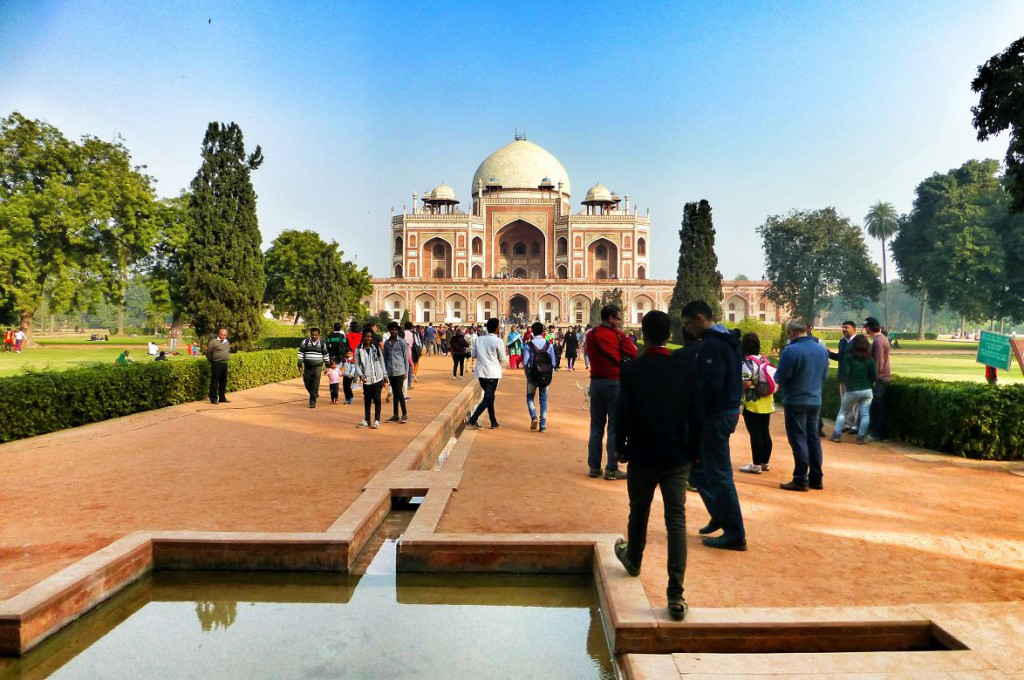
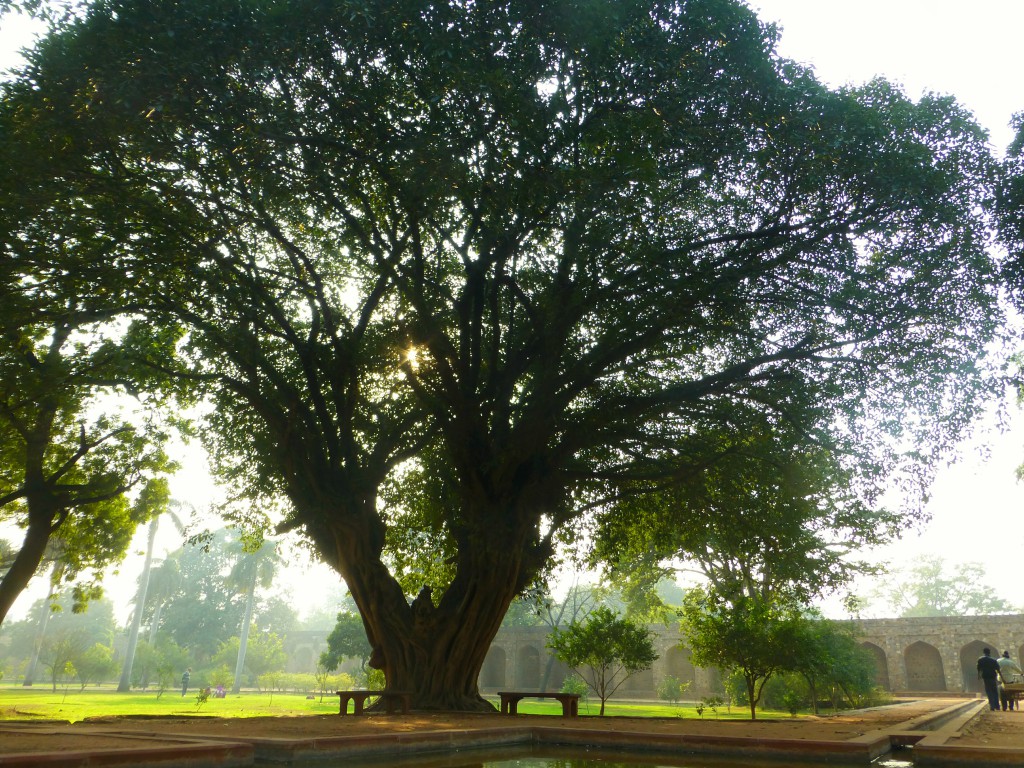
Humayun’s Tomb, a World Heritage Monument – Delhi, India
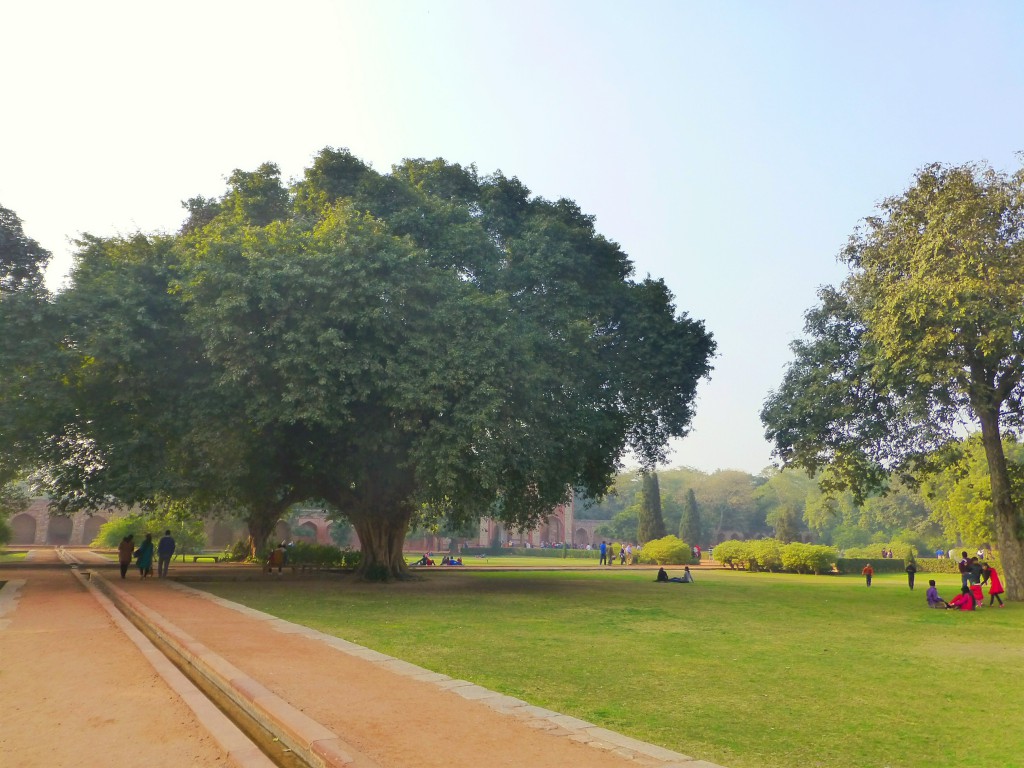
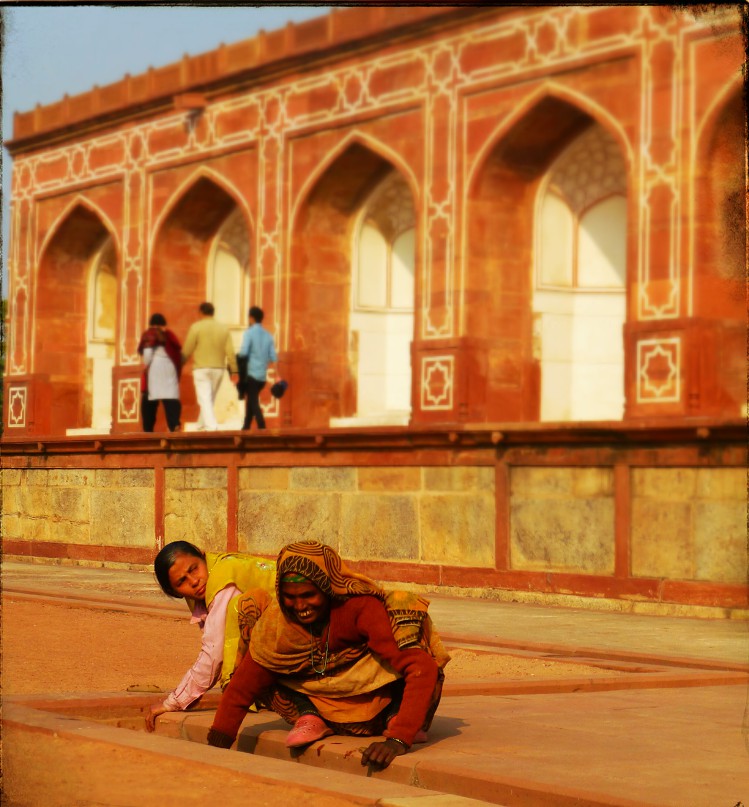
Standing in front of that 7 metres high platform.
Walking in the gardens, standing on the centuries-old platform of the mausoleum really did give me a special feeling. It has been there for so many centuries and so many people have stood here before me, looking at the same imposing building and must have loved it too. It did make me realise how little time I have here on this earth and it also made me so happy to be standing there and enjoying such beautiful places on the beautiful earth!
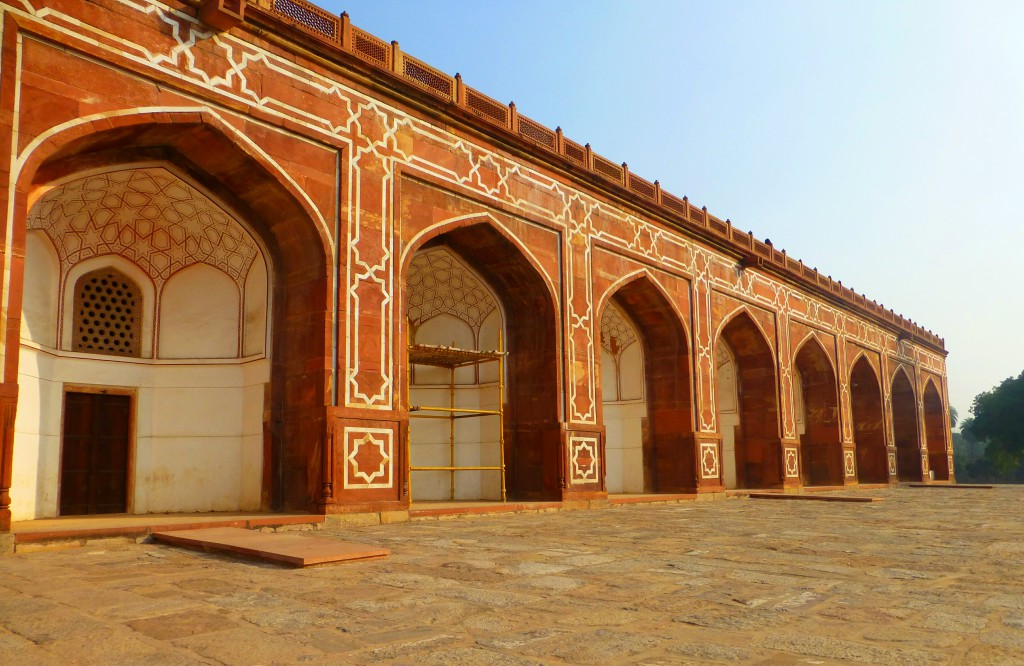
Standing on that first platform
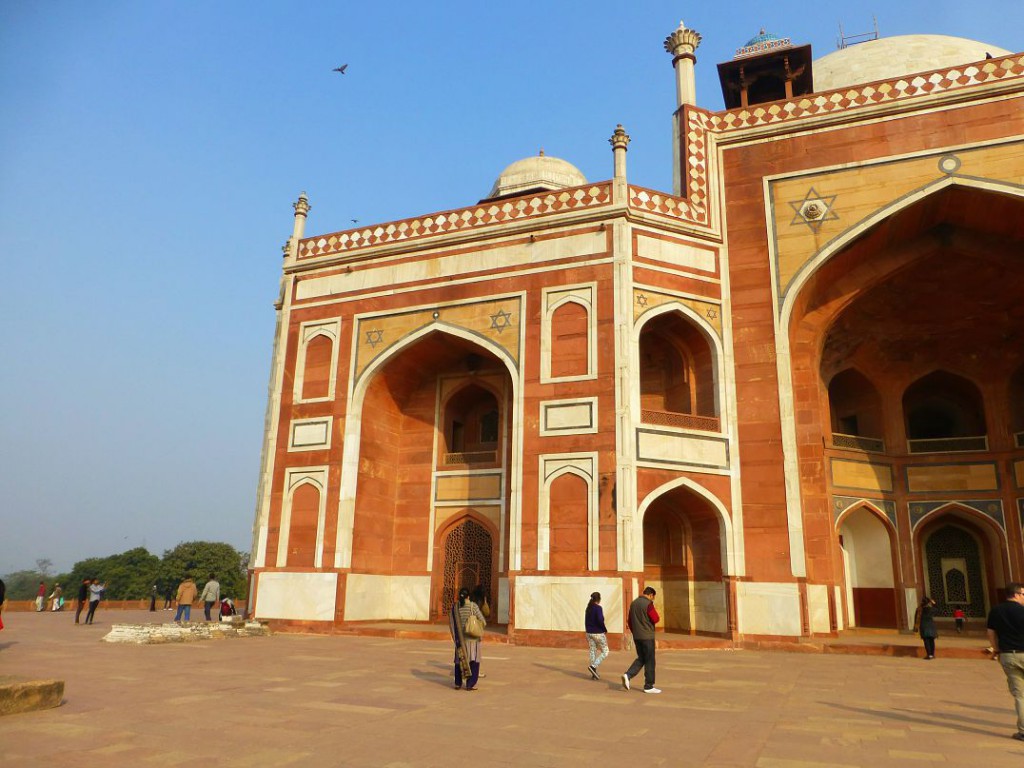
Second and highest plaform, same level as mausoleum.
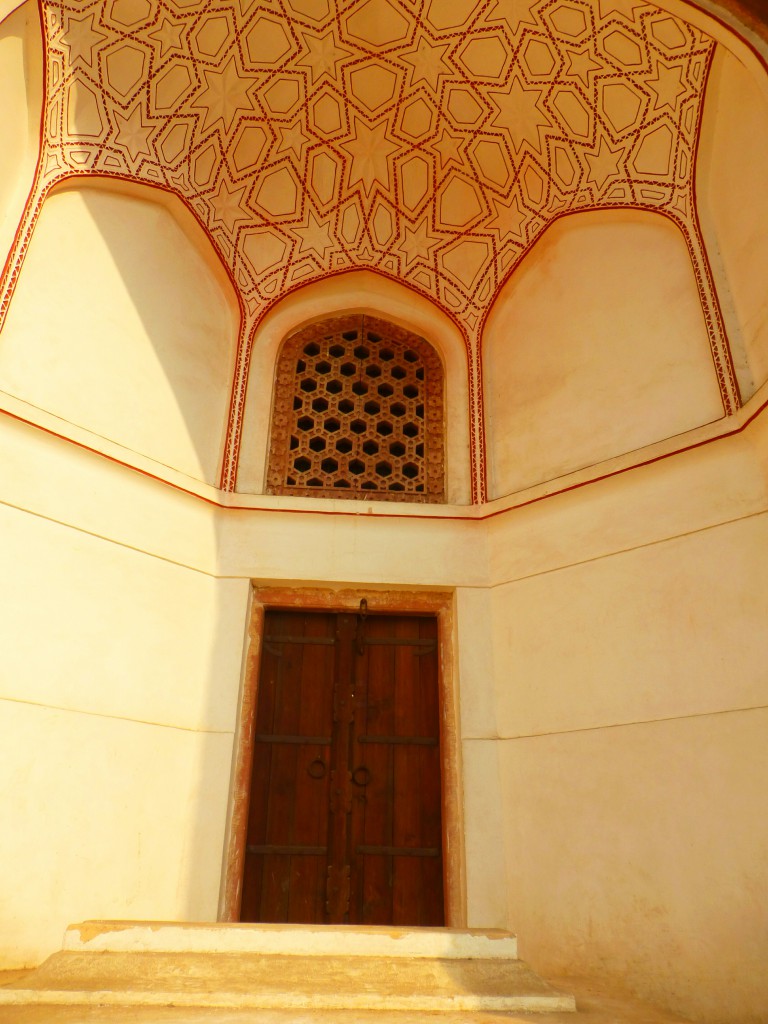
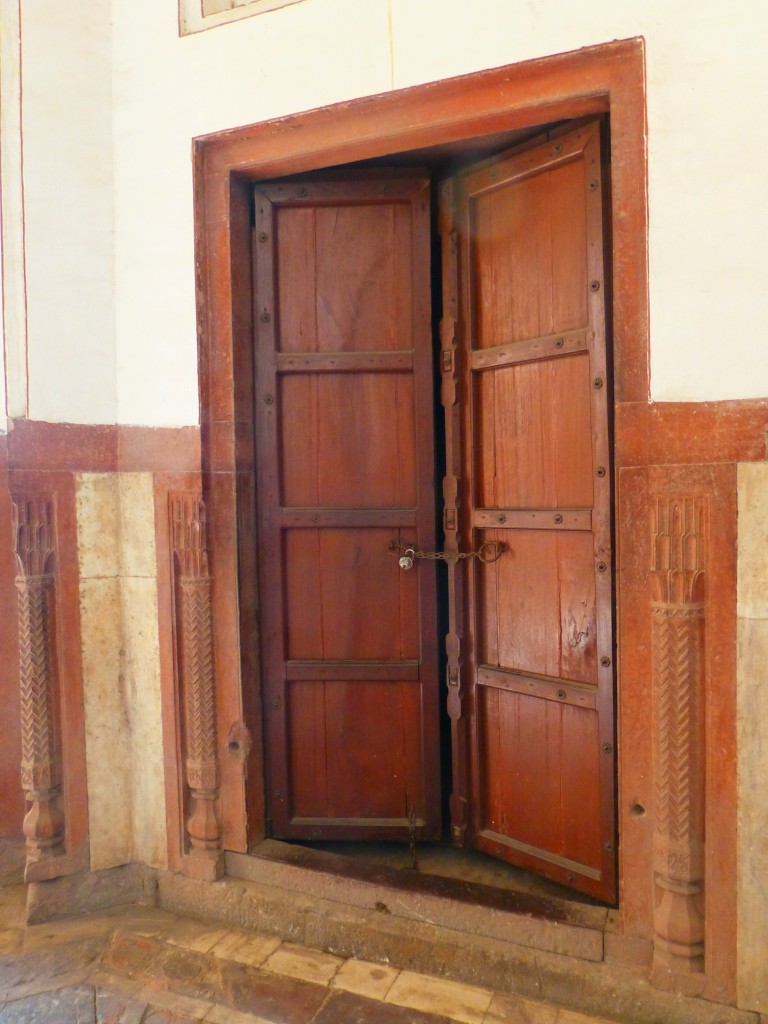
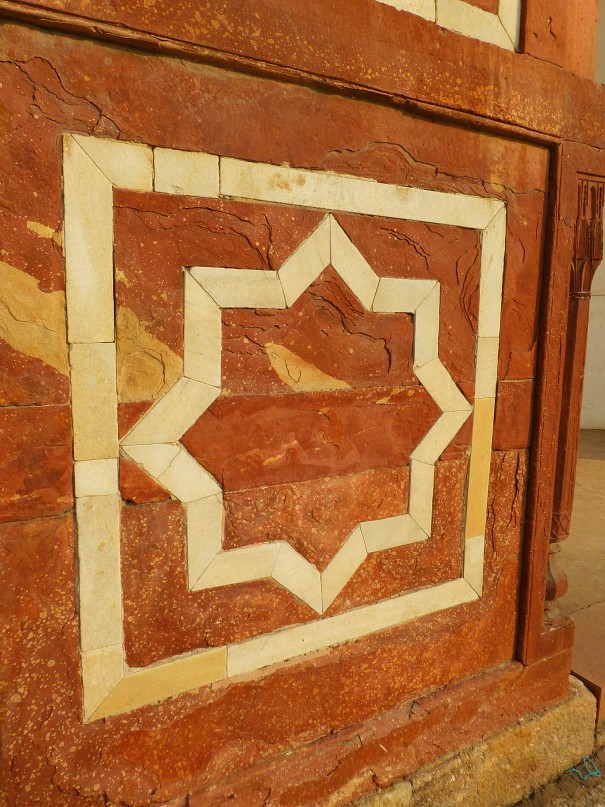
Everything, every wall, everywhere you look it is perfectly decorated and still shines with beauty.
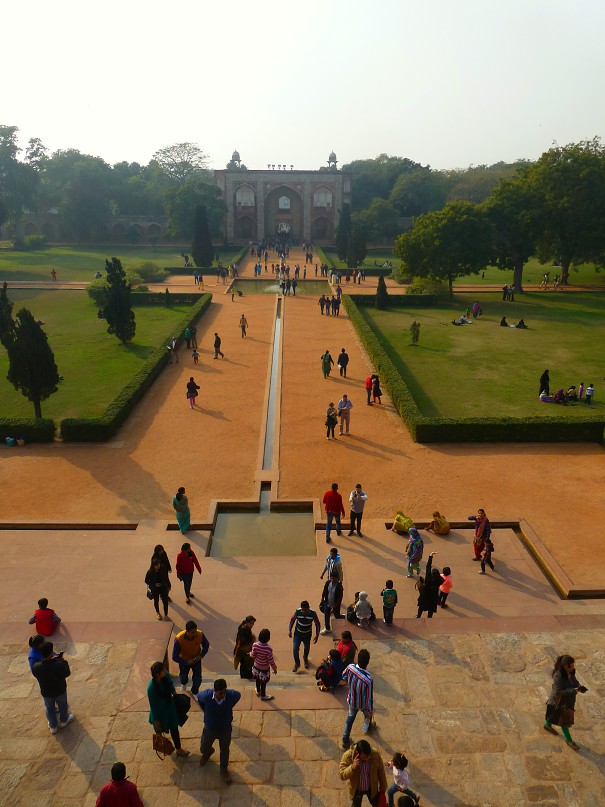
Looking back over the garden to the entrance gateway
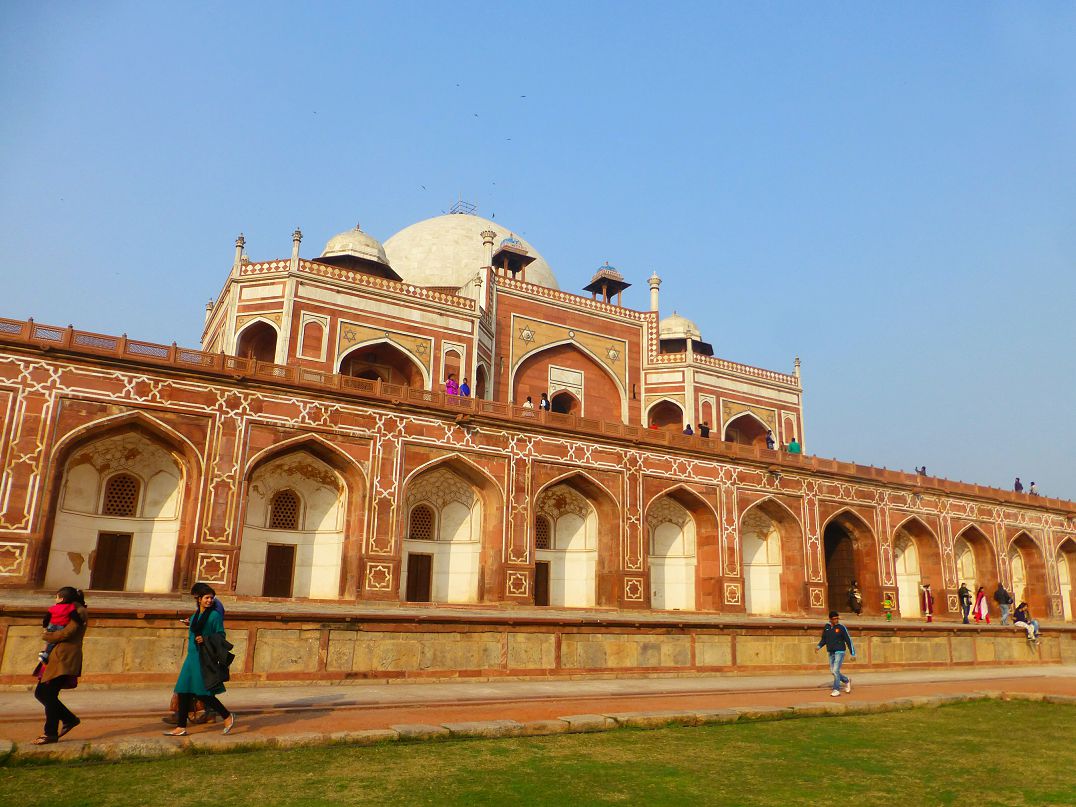
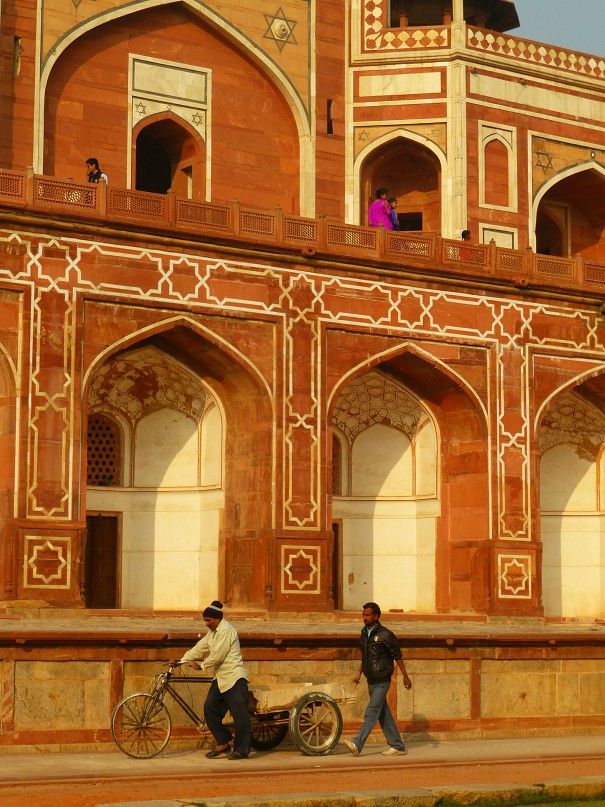
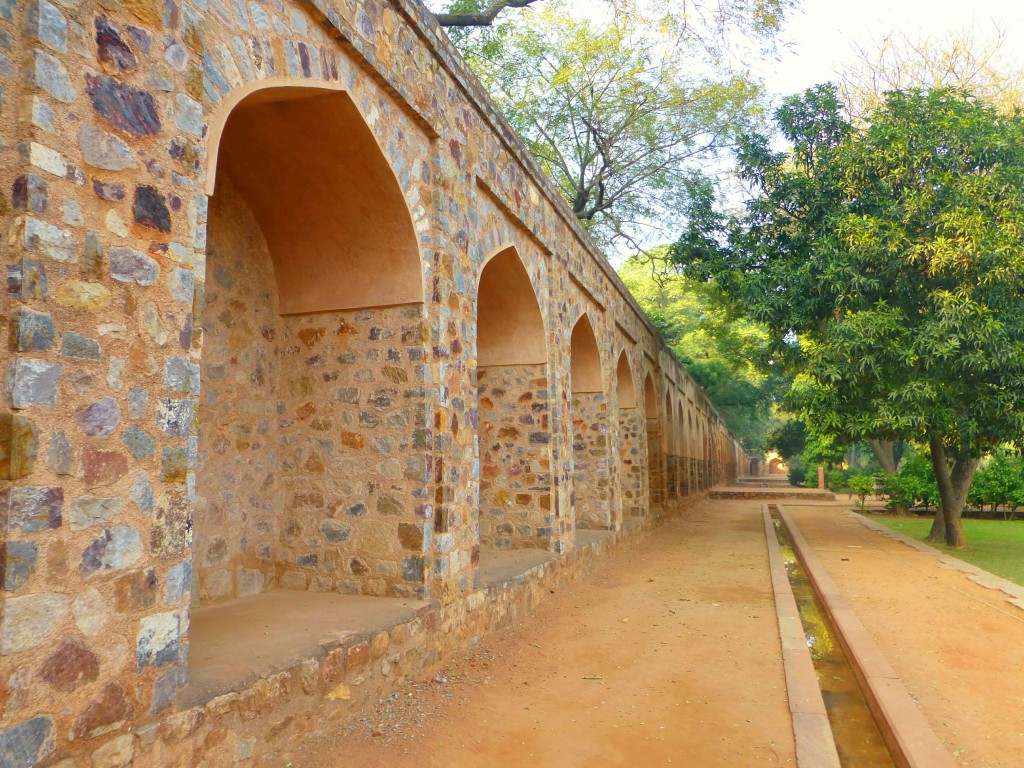
The wall that included the garden
Information tomb of Humayun
Entrance fee:
For ‘foreigners’, non-Indians in 2024, the entrance fee is R550. For Indian citizens, it is a smaller amount. As you can see from the picture, I was there in 2015 and paid 250. In addition, they charge a fee if you want to film, I read on the site. But if I remember correctly, I had to pay this because I was carrying a camera. This is so in many Asian countries, paying to take photos.
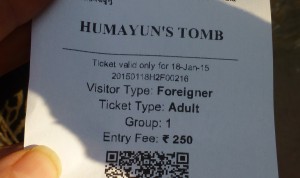
Visiting time
Humayun’s Tomb is open daily between sunrise and sunset. I was there for at least 1.5 to 2 hours and could have walked around for an extra hour.
I haven’t yet checked out the secluded tombs in the main garden surrounding Humayun’s mausoleum. So if you want to walk around at your leisure, an extra hour is no problem.
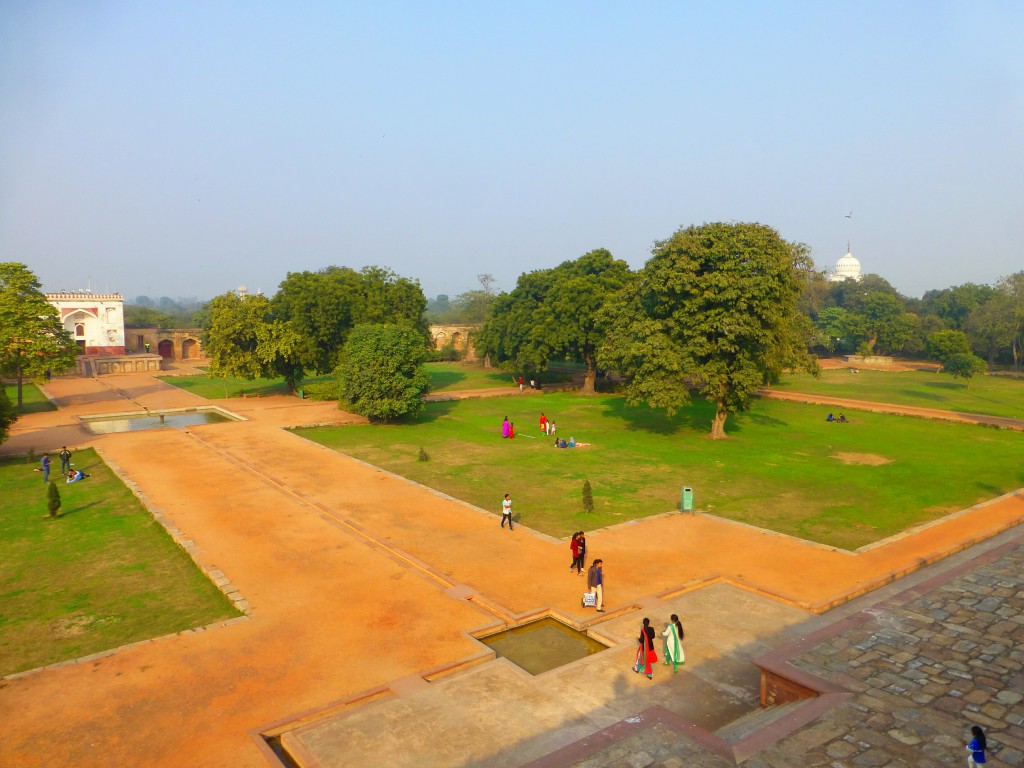
Between the trees you can see another white dome sticking out, which can be visited. This is to the left of Humayun’s mausoleum.
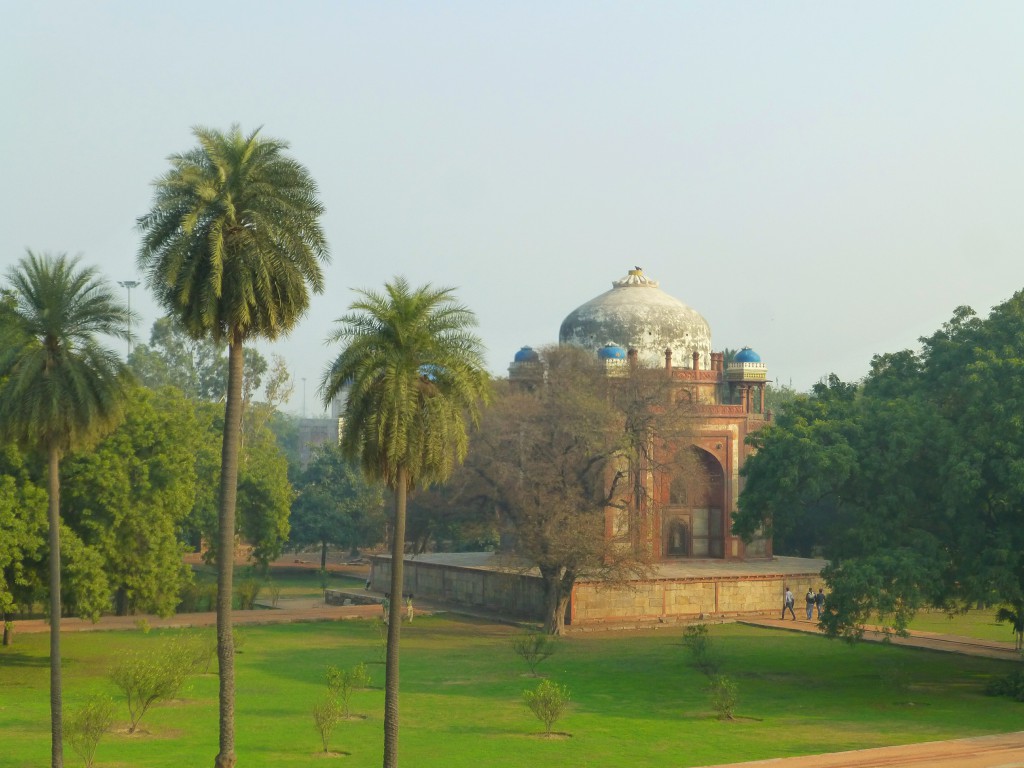
On the right side also a tomb, a bit closer.
Book your visit to this tomb in combination with a day tour of Delhi
Book your overnight stay in Delhi? Check out this beautiful Haveli in the city centre near the Red Fort and Jama Masjid.
If you liked this? Would you share it for others?
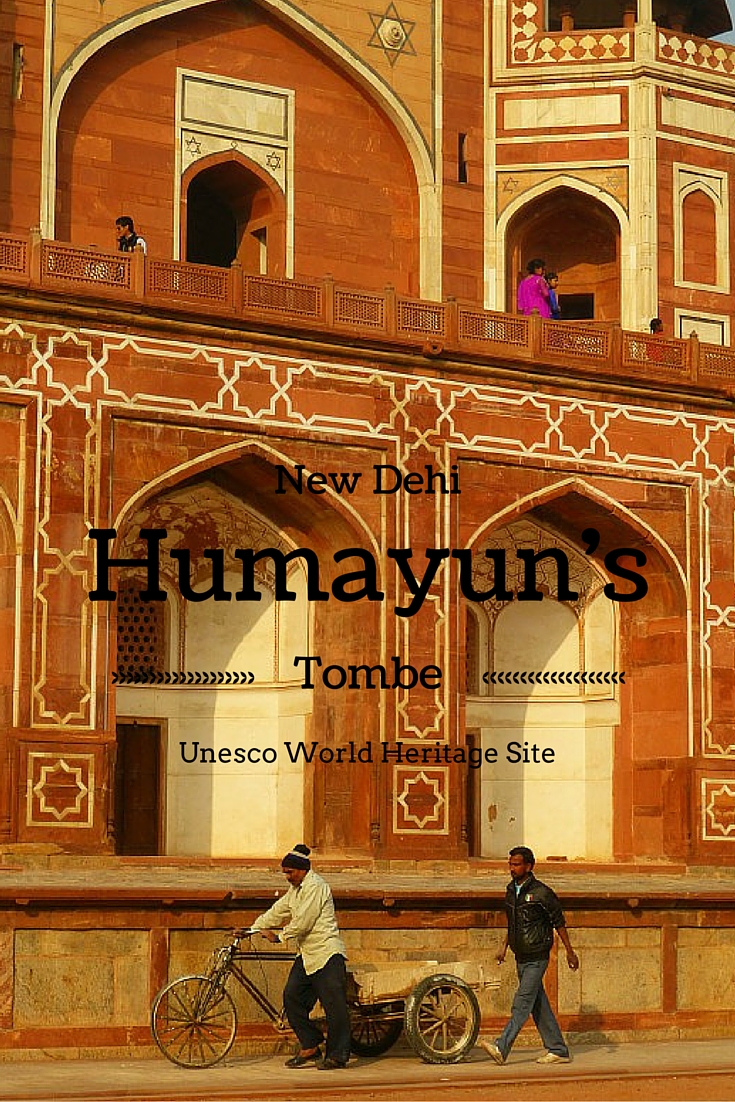
Want to see some more India Adventures?
Sunrise at the Taj Mahal, Agra
Climbing the Thajiwas Glacier, Kashmir – India
Dive into the Streetfood Culture – Mumbai
